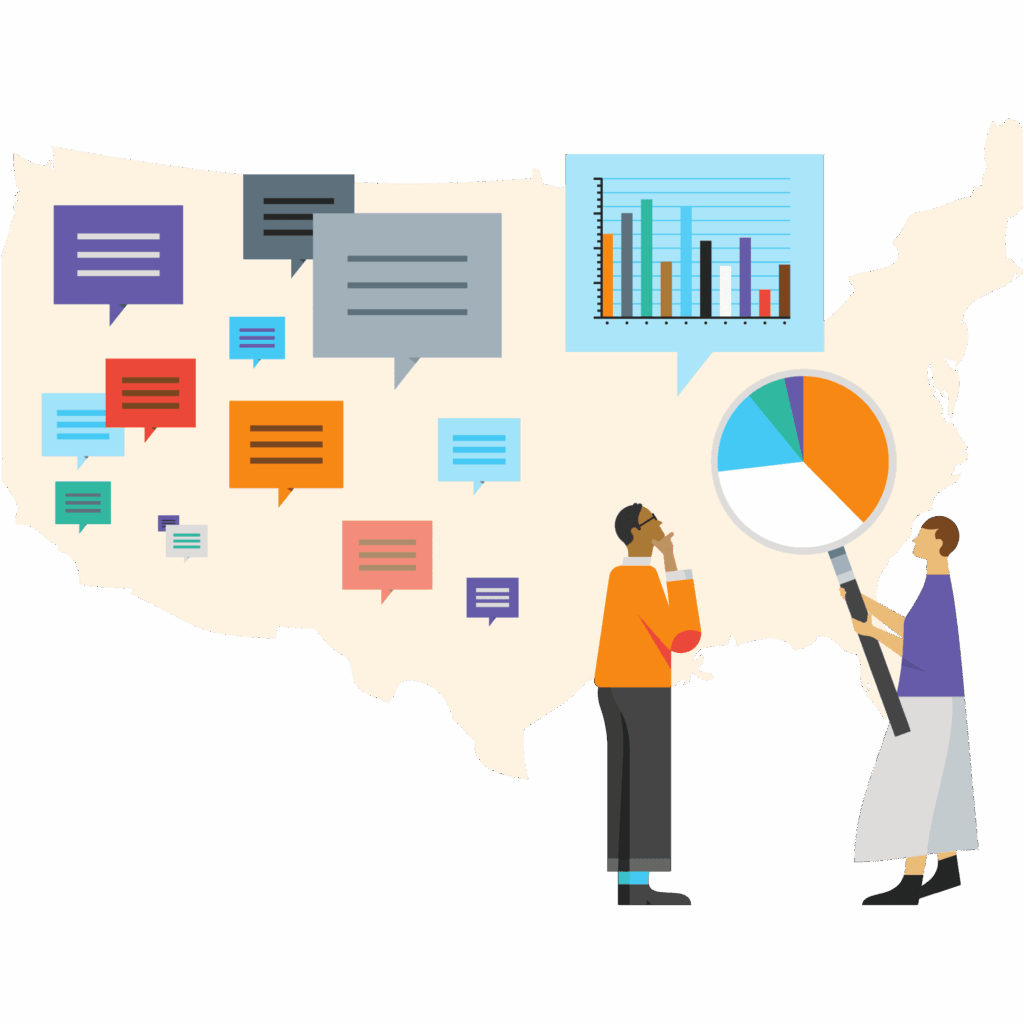Data in Action
The State of the Nonprofit Sector Survey is a vital look into the financial and operational realities nonprofits face. By listening to nonprofit leaders nationwide, we surface the challenges, trends, and opportunities shaping the sector.
NFF has conducted the State of the Nonprofit Sector Survey ten times since 2009, garnering thousands of responses from nonprofits of all sizes across sectors and geographies.
This collective dataset is used to advocate for meaningful actions philanthropy, government partners, and other community leaders can take to support nonprofits now and in the future. Findings provide a powerful picture of all that nonprofits do for communities, and what they need from their supporters to keep serving.
2025 Survey Results Now Live!
See how nonprofits are faring
Explore data you can use for advocacy and financial storytelling.

2025 Highlights and Findings
Key findings show tension between the rising demand for services and growing financial constraints:
- 85% of survey respondents expect service demand to increase in 2025.
- 36% ended 2024 with an operating deficit, the highest in 10 years of NFF’s survey data.
- 86% said high costs due to inflation have impacted their organizations and clients.
- Over half of survey respondents (52%) have 3 months or less cash on hand, and 18% have one month or less cash on hand.
- 84% of respondents with government funding expect cuts to that funding.
Explore full 2025 Survey results.
Survey Results Cited and Used by Leaders
- Referenced by the White House Office of Social Innovation and in a California State Legislative Hearing.
- Used by the National Council of Nonprofits to shape policy recommendations on indirect costs and impact investing.
- Cited by New York City’s Human Services Council in its call for cost-of-living adjustments for nonprofits with government contracts.
- Featured in Independent Sector’s debate on the charitable deduction.
- Published in leading media outlets, including The New York Times, Stanford Social Innovation Review, Nonprofit Quarterly, and Chronicle of Philanthropy.
- Incorporated into a report for Los Angeles Mayor Karen Bass with recommendations on improving nonprofit partnerships to address homelessness and other urgent priorities.
